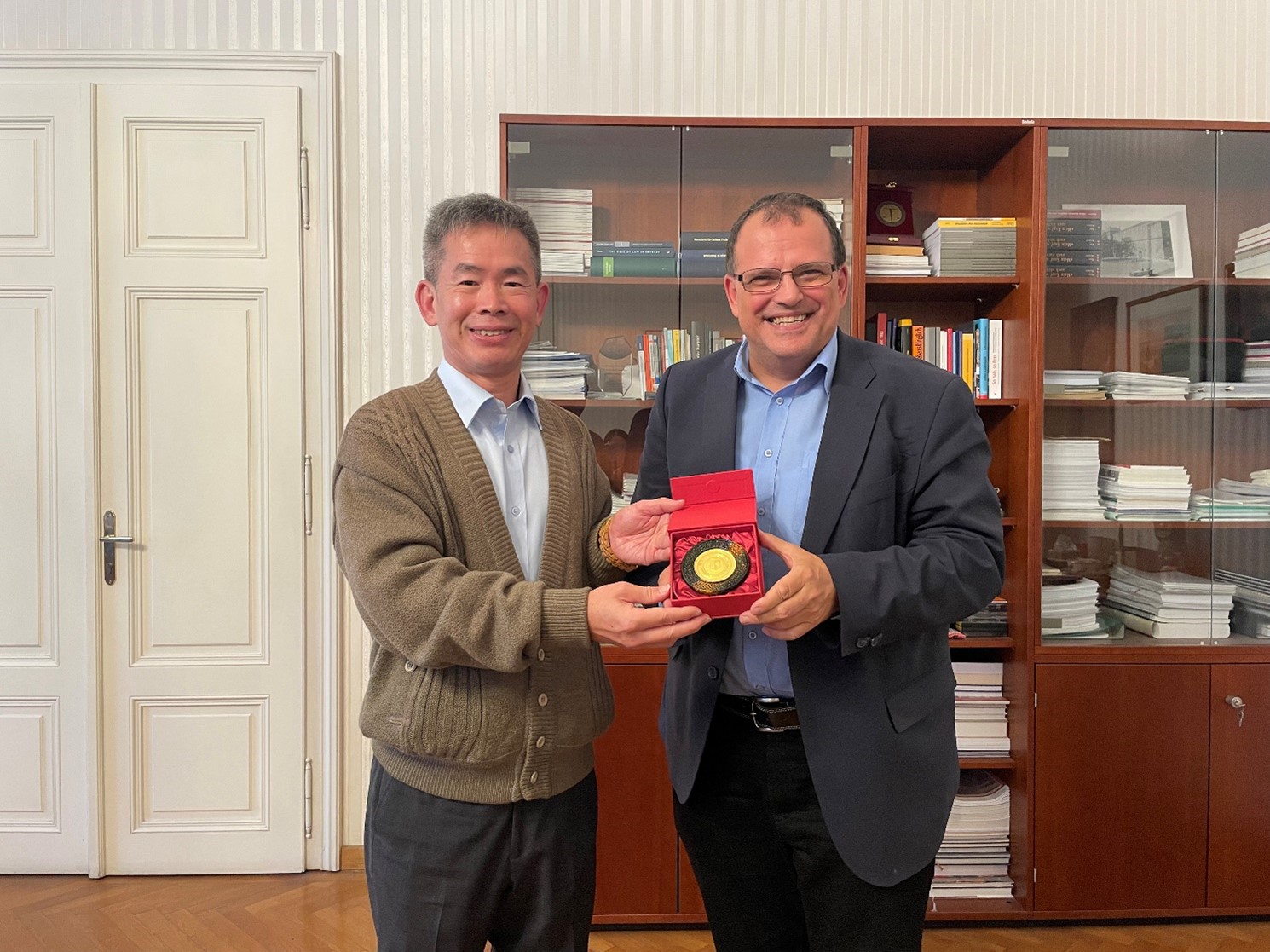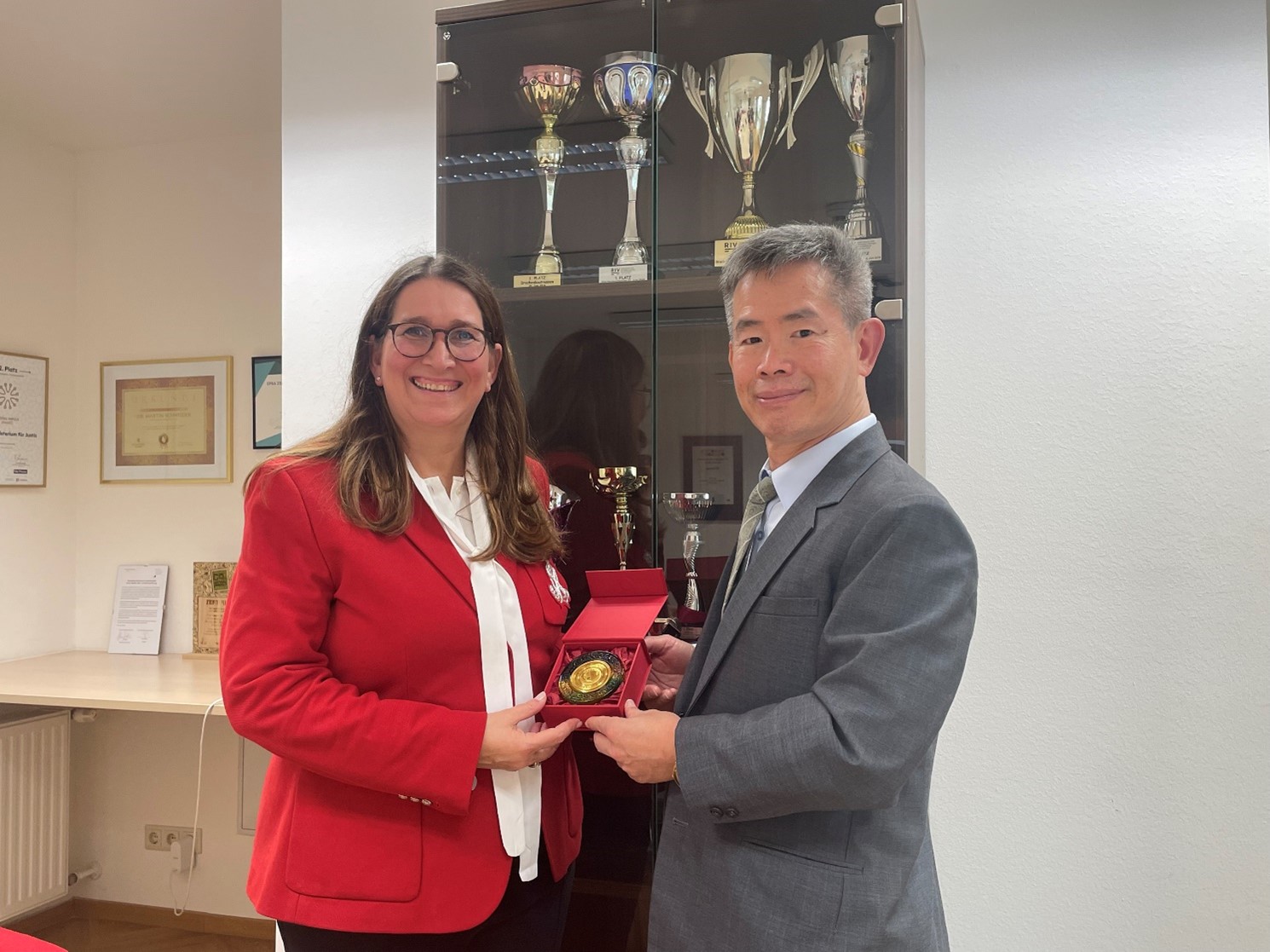President Hsun-Lung Wu led a delegation to Austria on a study tour of the judicial training system for the Austrian judiciary from October 26 to November 1, 2025
- Publication Date:
- Last updated:2025-11-11
- View count:63
In response to the resolution of the 2017 National Conference on Judicial Reform concerning the examination and training of legal professionals, a draft bill governing the qualifications and appointment of legal professionals has been proposed, requiring the completion of one year of practical training. This training includes internships in courts, prosecutors’ offices, law firms, administrative agencies, and NGOs. To better plan the implementation of practical training and study the operation of long-term judicial training in Austria, President Hsun-Lung Wu of the Academy for the Judiciary led a study visit to Vienna, Austria, from October 26 to November 1, 2025.
In Austria, there is no single institution dedicated exclusively to judicial training. Instead, the Federal Ministry of Justice designs the pre-service training program for future judges and prosecutors, which is implemented by the four Higher Regional Courts across the country. Judicial training in Austria centers on a four-year Judicial Preparatory Service (Richterlicher Vorbereitungsdienst). Individuals aspiring to become judges or prosecutors must first obtain a law degree and complete a five-month court internship (Gerichtspraxis). After passing the candidate examination, they become candidate judges (Richteramtsanwärterinnen und Richteramtsanwärter), allowing them to proceed with the Judicial Preparatory Service. Upon completing the program and passing the judge’s examination (Richteramtsprüfung), they become qualified to serve as judges or prosecutors.
To gain a deeper understanding of Austria’s judicial pre-service education and practical training system, the delegation met with several senior judicial officials, including Friedrich Forsthuber, President of the Vienna Regional Court for Criminal Matters; Daniel Potmesil, Judge of the Vienna Regional Court for Criminal Matters and official in charge of judicial training at the Vienna Higher Regional Court; and Britta Tichy-Martin, Directorate General for Central Administration and Coordination at the Federal Ministry of Justice. The delegation engaged in in-depth discussions and exchanges on judicial education and practical training and was also invited to visit the Vienna Labour and Social Court, the Palace of Justice, and the Federal Ministry of Justice.
During this visit to Austria, the Academy not only sought advice from distinguished senior judicial officers—drawing on their extensive knowledge and experience in planning and implementing Austria’s judicial training system—but also shared insights into Taiwan’s system for the examination and training of legal professionals, the recent reforms introducing the lay judge system in criminal proceedings, and current trends concerning the workload and mobility of judicial personnel. In addition, the Academy took this opportunity to establish channels of communication with foreign judicial practitioners and experts, actively exploring possibilities for future international cooperation.



